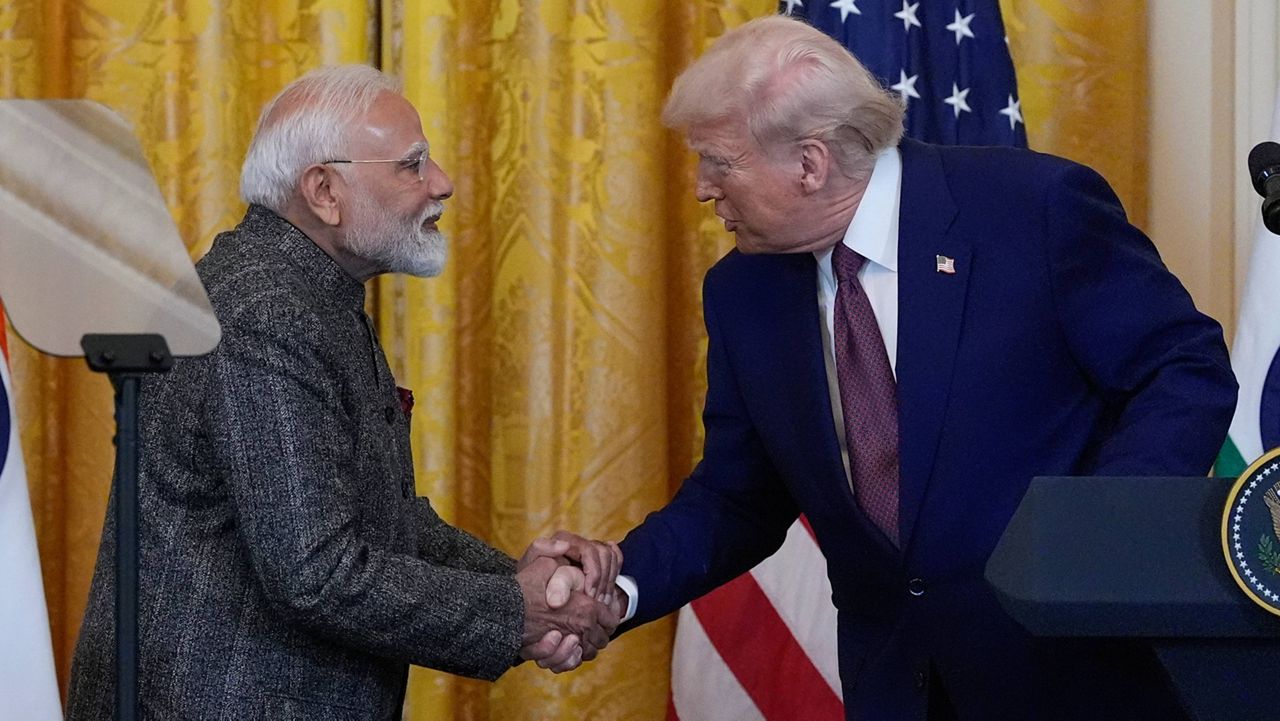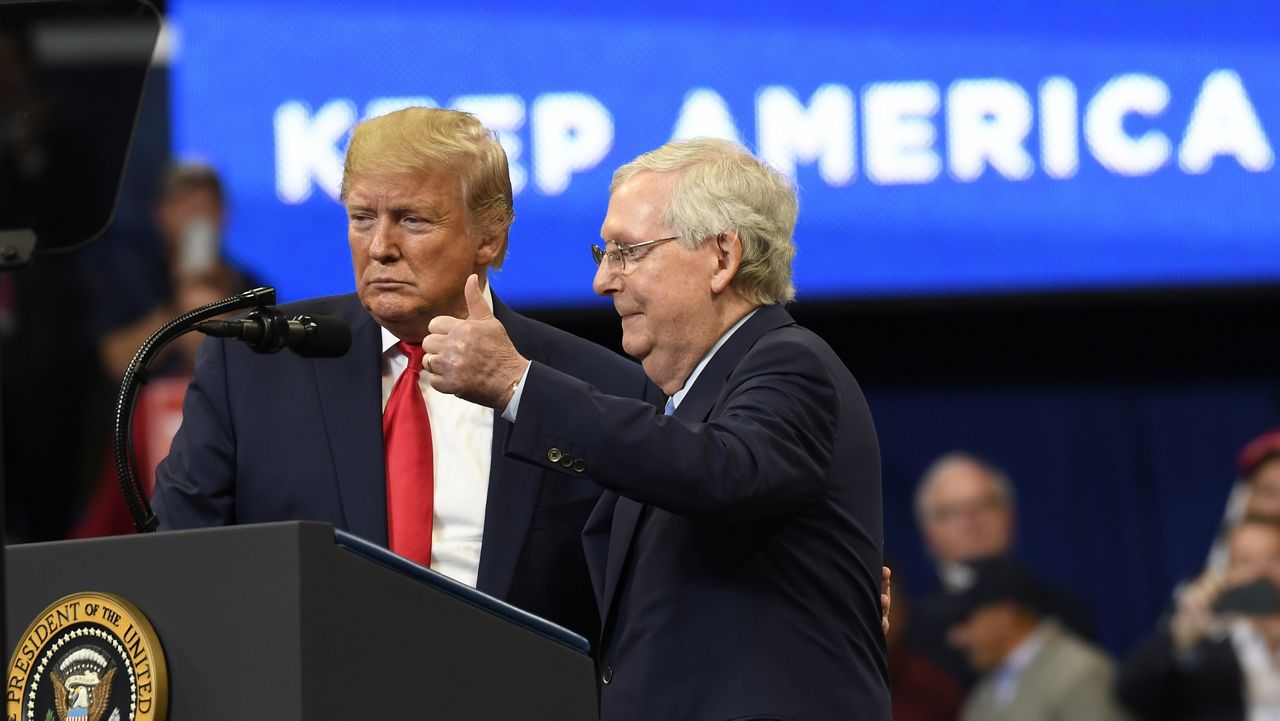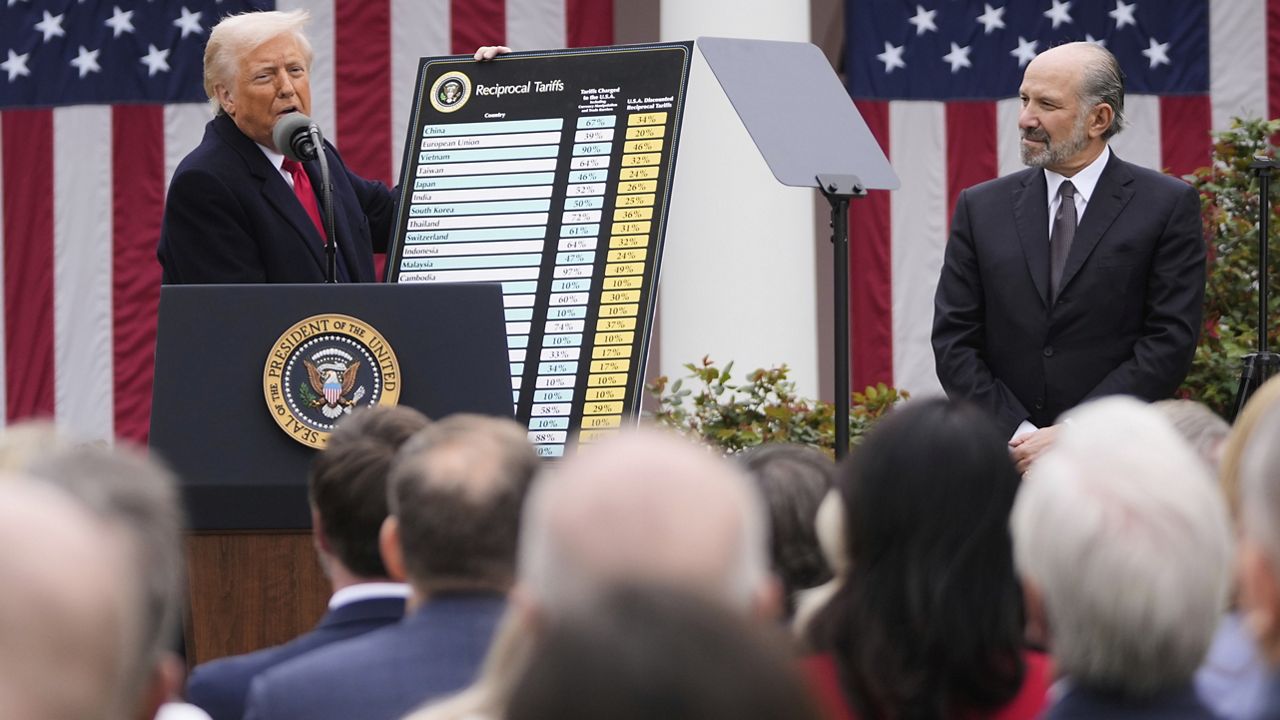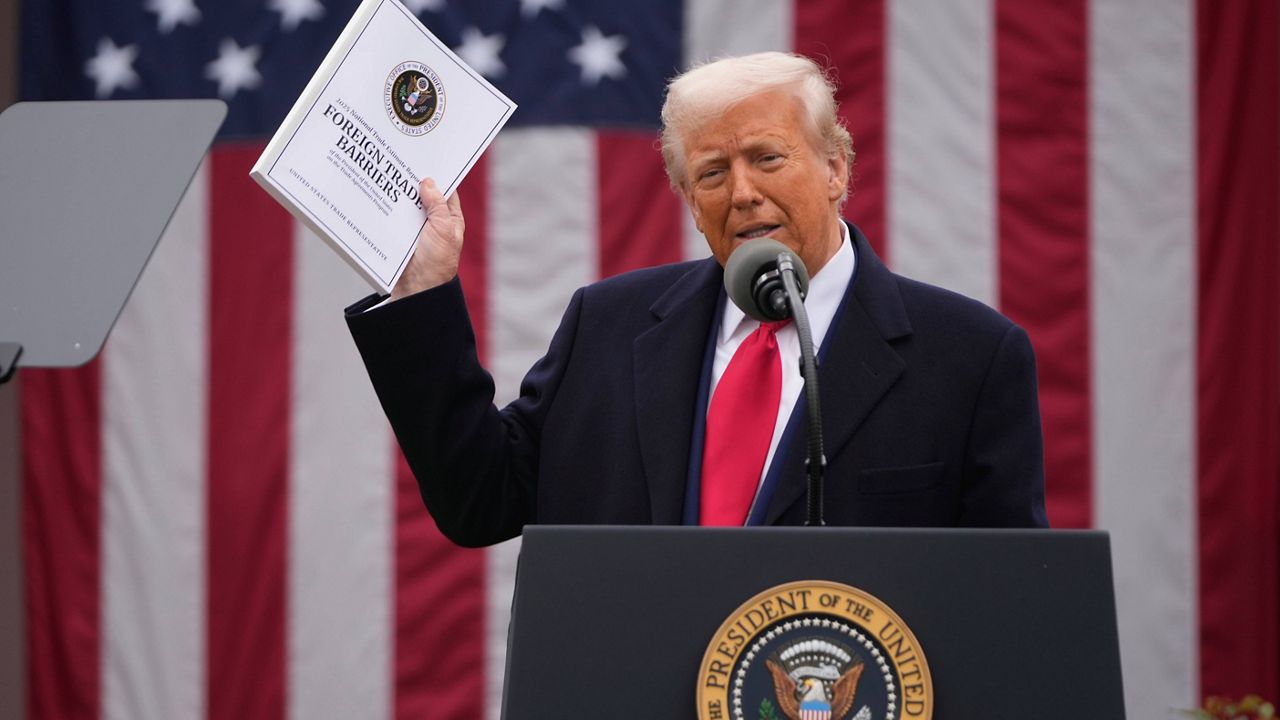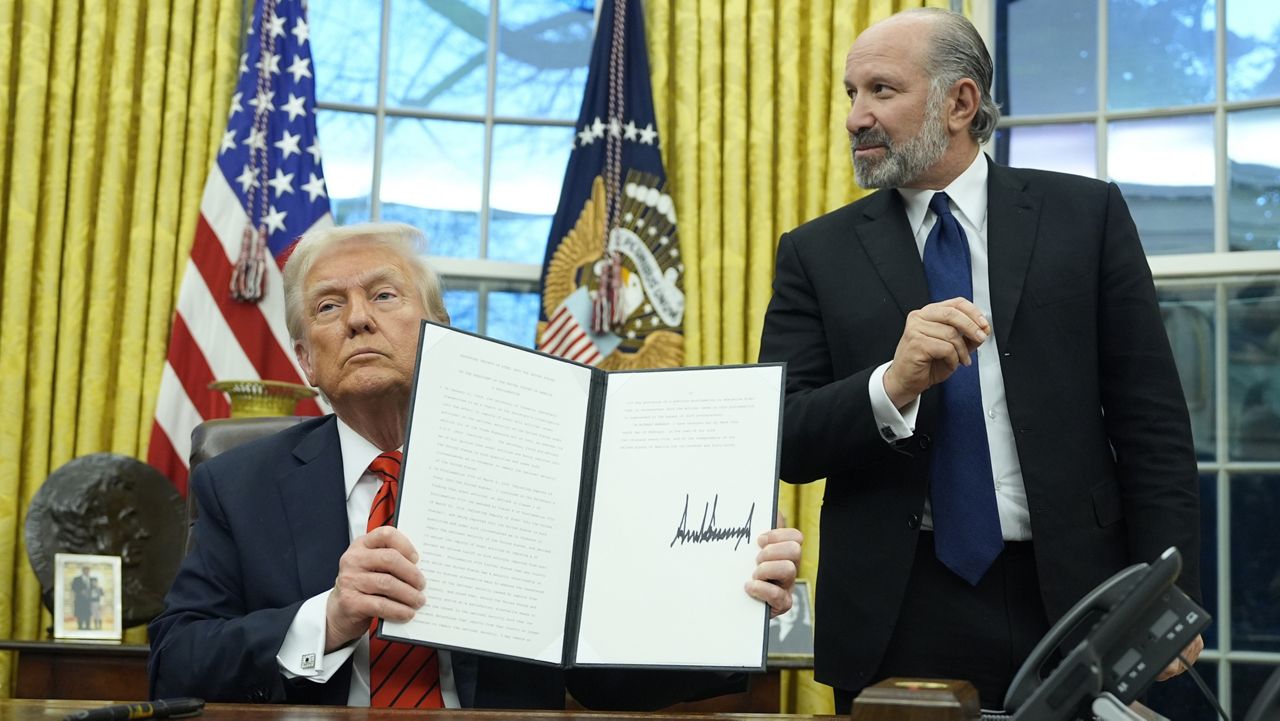WASHINGTON — The world is waiting in anticipation of President Donald Trump’s latest – and what is expected to be his most sweeping – tariff policy, the effects of which will be felt around the globe. The president is set to unveil the new duties at a White House Rose Garden ceremony at 4 p.m. on Wednesday with his Cabinet in tow.
Opening Tuesday’s White House briefing, press secretary Karoline Leavitt framed the next 24 hours – “Liberation Day,” as Trump has dubbed it – as “one of the most important days in modern American history.”
Leavitt told reporters it was her understanding that the new tariffs will take effect immediately once they are announced. She said the president was huddling with his trade and tariff team as she spoke, “perfecting” the policy for the American people.
But with those around the globe waiting with bated breath, little is known at this point about what exactly will be announced in less than 24 hours.
Trump told reporters in the Oval Office on Monday afternoon that he had “settled” on a decision for the new tariffs but did not say what it was. Leavitt this week has insisted she would not get ahead of the president’s announcement.
She told reporters at the White House on Monday that the president’s top trade and tariff advisors – listing Commerce Secretary Howard Lutnick, Treasury Secretary Scott Bessent, Trade Representative Jamieson Greer, advisers Peter Navarro and Stephen Miller and Vice President JD Vance – were all involved and presented plans to Trump.
The president has already imposed new fees on China as well as separately on steel and aluminum imports, been back-and-forth on duties with Canada and Mexico over immigration and fentanyl and announced new tariffs on foreign-made cars that are set to take effect this week. But April 2 – notably, not the first of the month due to it being April Fool’s Day, according to the president – has long been teased by Trump as the day his “reciprocal” tariffs, once explained as putting the same levy on all other countries that they put on us, will be announced.
Trump often contends that the U.S. has long been treated unfairly on trade and such a move, he argues, would help balance those economic relationships, bring in revenue to the country, create jobs and spur domestic manufacturing.
But since originally floated, there has been a flurry of comments from the president that have driven uncertainty, including that there will be “flexibility,” and that his tariffs will be “far more generous than those countries were to us.”
“No, the tariffs will be far more generous than those countries were to us, meaning they will be kinder than those countries were to the United States of America over the decades,” Trump told reporters on Air Force One on Sunday, before adding that it will bring in a “substantial money for the country, nevertheless."
Speaking with reporters on Monday, Leavitt said there would be no exemptions for certain countries “at this time.” At the same time, at Tuesday’s briefing, Leavitt said the “quite a few countries” have called the president to discuss the upcoming duties, adding that he is “always up” for a phone call and a “good negotiation.”
Some economists have warned that the long-pledged tariffs could worsen inflation at home and Trump himself has acknowledged that they may cause “a little disturbance” to Americans. The uncertainty has also rattled U.S. markets.
Leavitt called concerns over the economic impact “legitimate,” adding that the president takes them “very seriously, and he’s addressing them every single day.” She went on however to stress the policy is about protecting “future generations,” and suggested that some of Trump’s other policy goals in the works would help lower inflation.
Some members of Congress have been skeptical of the tariff agenda. Democratic Sen. Tim Kaine of Virginia put forward a resolution seeking to dismiss Trump’s basis for tariffs on Canada, calling such a move a “huge national sales tax” on Americans in a press conference on Tuesday. One Republican is a co-sponsor of the resolution and some others in the GOP have expressed openness to supporting it or concern about the tariff policies in general.








